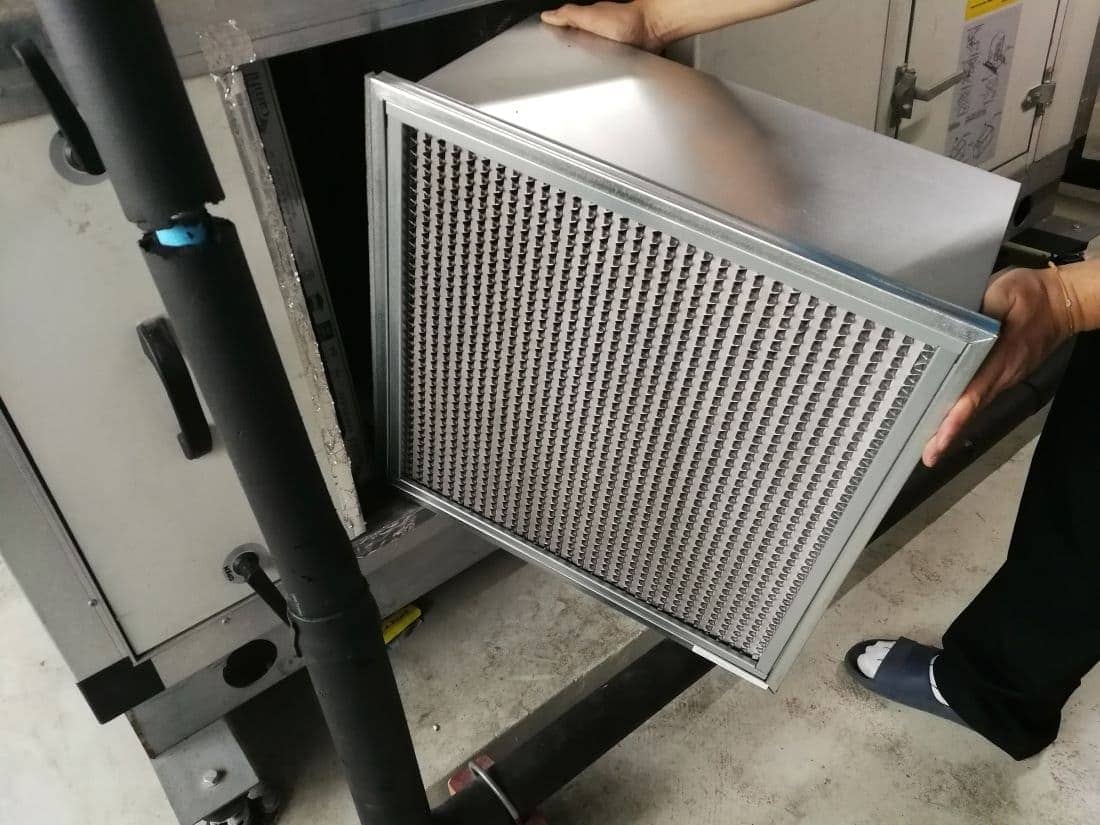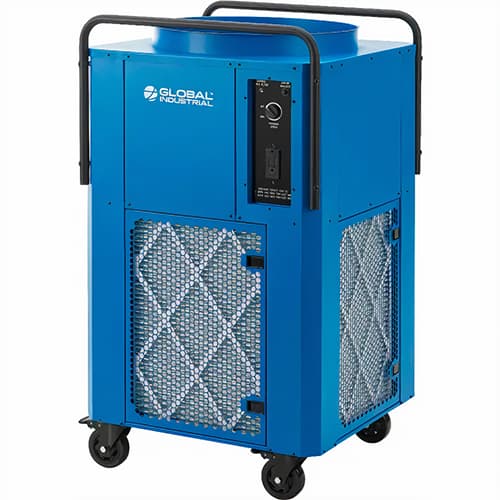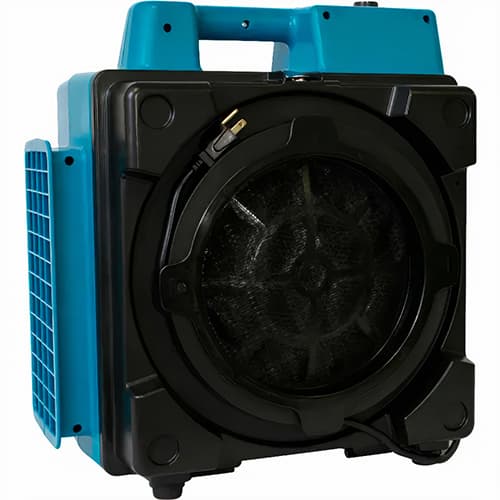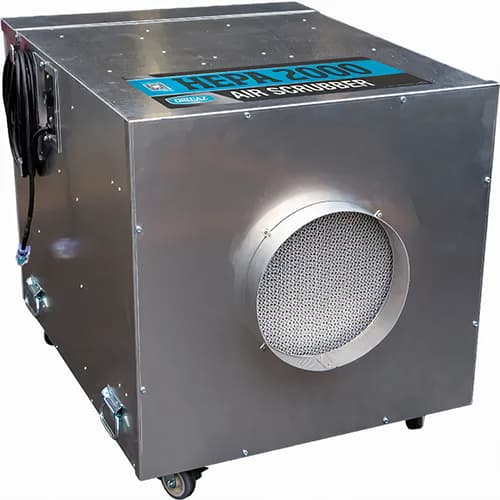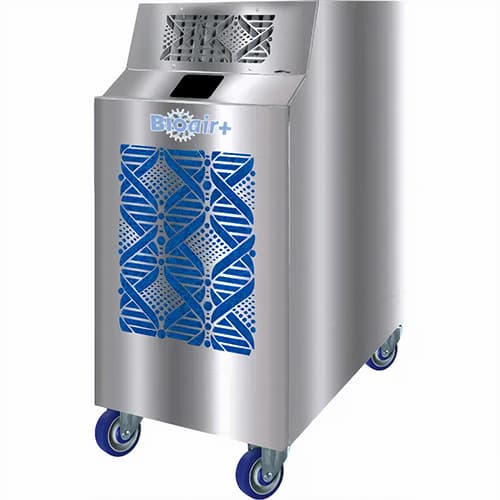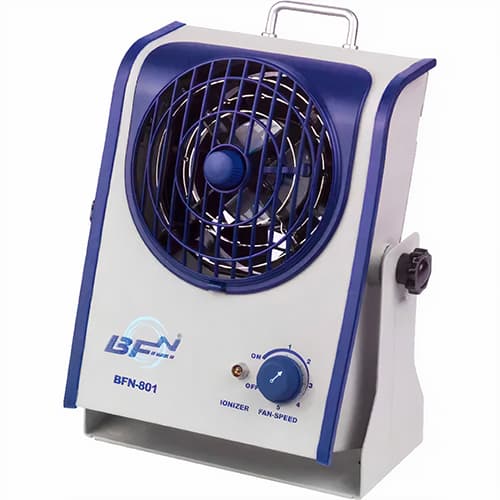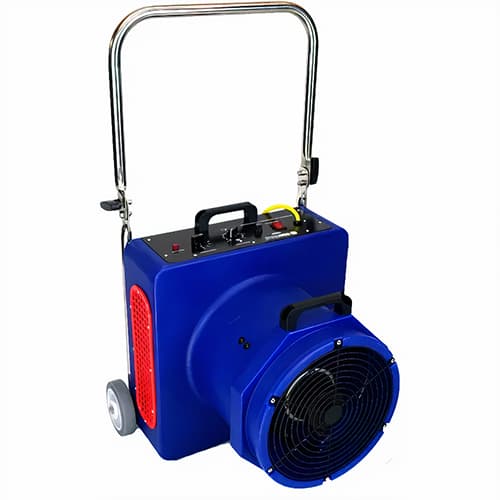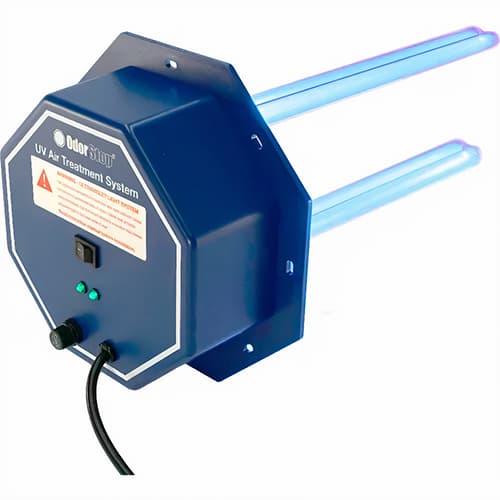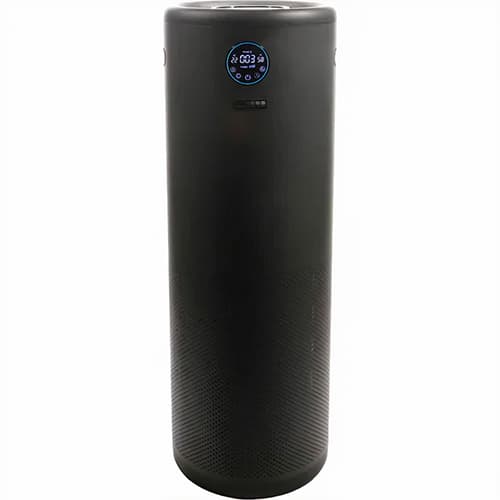Let’s clear the air. In the wake of COVID, the importance of Indoor Air Quality (IAQ) has been thrust to the forefront. Air quality significantly affects our health and well-being in every sector. While it seems obvious to focus on air quality in areas like healthcare, hospitality, education, and residential settings, IAQ is equally vital in commercial and industrial spaces which may be rife with dust and industrial pollutants. Recent studies have shown how much air quality impacts mental health and overall wellness. In short, we need clean, purified air to be healthy and productive.
Enter air purifiers. Controlling IAQ is essential for both small and large settings. Whether you’re looking to clear the air of your home, office, or industrial facility, now is the time to look at your air purifier needs.
Why do I need an air purification system?
Air purifiers play a crucial role in addressing specific concerns related to air quality:
- Removing Harmful Chemicals: Air purifiers are effective in eliminating harmful chemicals present in the air, ensuring a safer and healthier environment.
- Reducing Airborne Illness: By trapping and filtering out airborne pathogens, air purifiers help in minimizing the risk of respiratory infections and illnesses.
- Odor Reduction: Air purifiers are equipped to tackle unpleasant odors, creating a more pleasant and comfortable atmosphere.
- Dust and Mold Removal: Especially crucial in industrial settings, air purifiers can efficiently capture and remove airborne dust and mold particles.
- Asthma Trigger Reduction: Individuals with asthma can benefit from air purifiers, as these devices help reduce triggers that exacerbate respiratory conditions.
- Mitigating Outside Pollutants: In regions affected by external factors like forest fires, air purifiers can be instrumental in reducing the infiltration of harmful smoke and pollutants.
Help Your Team Breathe Easy
Beyond the obvious health concerns, investing in an efficient air purification system yields numerous other benefits:
- Improved Job Satisfaction: Employees working in environments with clean air are likely to experience higher job satisfaction and overall well-being.
- Increased Efficiency and Fewer Sick Days: Clean air contributes to a healthier workforce, leading to increased efficiency and a reduction in sick days.
- Allergy Reduction: Individuals prone to allergies benefit from air purifiers, which help minimize allergens in the air.
- Asthma Risk Reduction: The use of air purifiers can significantly lower the risk of asthma attacks by removing triggers from the air.
- Enhanced Sleep Quality: In residential settings, air purifiers contribute to better sleep quality by creating a clean and allergen-free sleep environment.
- Positive Impact on Mental Wellness: Studies have shown that exposure to air pollutants can lead to various mental health issues, including depression, anxiety, and psychoses. Purifying the air can contribute to better mental well-being.
Microns Matter
Here’s the nitty gritty: to understand the efficiency of filtration, you need to know about the micron rating. It’s quite simple: the smaller the micron number, the finer the filtration. Filters with lower micron ratings can capture more impurities than those with higher ratings.
The MERV rating (Minimum Efficiency Reporting Values) quantifies a filter’s ability to capture particles between 0.3 and 10 microns. These ratings - derived from the American Society of Heating, Refrigerating, and Air Conditioning Engineers (ASHRAE) - provide a handy guide for determining your air filter needs. The higher the rating, the better the filter is at capturing certain kinds of particles.
Types of Air Purifiers
Let’s start with the difference between a negative air machine (purifier) and an air scrubber. Though the terms are often used interchangeably, there are a few key differences: negative air machines vent the exhaust outside the filtered room. This can be when contaminants like mold need to be removed from the premises and not further scattered. Although they can also be ducted to vent and effectively turned into negative air machines, most air scrubbers generally get rid of contaminants in an enclosed space by trapping airborne particles through filters.
But what system is right for your needs? Let’s take a deep dive on the latest products and features:
Whether in a commercial or residential setting, choosing the right type of air purifier is crucial for maintaining a healthy and productive environment. Global Industrial offers a diverse range of air purifiers catering to different needs and settings, ensuring that everyone can breathe cleaner, healthier air. Invest in the well-being of your space and the people within it by exploring the comprehensive selection of air purifiers from Global Industrial. As always, reach out to the Global Industrial team with questions.
The information contained in this article is for informational, educational, and promotional purposes only and is based on information available as of the initial date of publication. It is the reader’s responsibility to ensure compliance with all applicable laws, rules, codes and regulations. If there is any question or doubt in regard to any element contained in this article, please consult a licensed professional. Under no circumstances will Global Industrial® be liable for any loss or damage caused by your reliance on this article.
